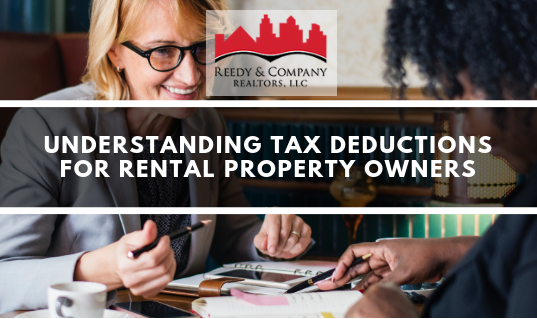When you own investment real estate, tax deduction management is a big part of your profit-generating strategy. However, not all landlords understand the full extent of their tax deduction opportunities even when they are fully and aptly managing a portfolio of rental properties. So whether you’re just getting into the game or are looking to hone your tax deduction strategy, we’ve put together a comprehensive non-state-specific list of all the different ways you can legally and rightfully deduct taxes related to your rental property management and maintenance.*
Landlording is a Business; Business Expenses are Tax-Deductible
The most important thing to remember about how your tax deduction strategy is that being a landlord is considered running a business, whether you have one house or hundreds. Investment real estate is a personal business plan. And business expenses are by definition tax-deductible. This means that almost all spending you do related to your investment properties can be seen as tax-deductible as long as you follow a few basic guidelines.
Interest Accrued on Properties or Management Expenses
Interest accrued in the act of managing your rental properties is tax-deductible each year. But this goes above and beyond your basic mortgage interest. In fact, any interest accrued relating to your rental properties can be deducted. Including interest on home improvement loans, storage rental for abandoned or staging furniture, and even your credit card interest if you buy things for the tenants or properties.
- Mortgage Interest
- Improvement Loan Interest
- Business Credit Card Interest
Employee Wages and Service Fees
If you hire someone to do work for your property, that is a tax-deductible expense. When you hire plumbers and roofers to take care of your rental homes, what you pay them is a deductible business expense. If you hire property managers to see to the properties, that too is deductible. In fact, even the neighborhood kid who rakes the leaves and shovels the snow is tax-deductible. As long as you give them a receipt.
- Maintenance Services
- Property Managers
- Anyone Who Services the Property
Depreciation of Assets
Did you know that a rental home is considered a depreciating asset? While it’s true that property values, as a whole, continue to rise, the government also acknowledges that homes and their contents wear out over time. The lifespan of a rental home is measured at 27.5 years, so you can deduct 1/27th of the home’s cost each year. But you cannot deduct the cost of the land, so you’ll need an appraisal report to separate out those numbers. You can also get a Cost Segregation Study to analyze the cost and lifespan of each aspect of your home like the carpet, roof, driveway, and so on and separate those out to individual deductions as well.
- The House Depreciates at 1/27th Per Year (But Not the Land)
- Individual Feature Depreciation
Legal and Financial Support Services
If you hire business support services to help you make smart decisions and properly manage your rental properties, the fees for these services are deductible as well. Your lawyer, accountant, and investment advisors are all part of your business expenses.
- Lawyers
- Accountants
- Investment Advisors
Travel for Investment Business Purposes
If you travel for your investment real estate business, these expenses can also be deducted, but within reason. To deduct travel expenses, you must keep records and receipts and spend at least half of your trip time seeing to investment matters. This, however, can include everything from flying out to scout or maintain properties to the gas for driving to the nearest home improvement store for supplies to DIY some maintenance.
- Scout New Properties
- Visit and Maintain Properties
- Long Drives for Maintenance Supplies
Marketing Your Properties
Last but certainly not least, you can deduct anything you spend marketing your rental properties. If you pay for tenant-sourcing platforms to promote your properties, those fees are deductible. Likewise for your own private website design and maintenance costs. And if you conduct non-digital marketing like hosting open houses and posting signs, these, too, are deductible business expenses.
- Websites
- Property Promotion Platforms
- Signs and Open Houses
Because investment property ownership is considered a personal business, any costs you incur while managing your real estate business are deductible as business expenses. Just be sure to take meticulous notes, always get a receipt (or write one) and stay within the letter of the law on each deduction. If you’re ready to make an investment, contact Reedy & Company today!
*Check with your tax advisor before to see if investing in a property is right for you.



